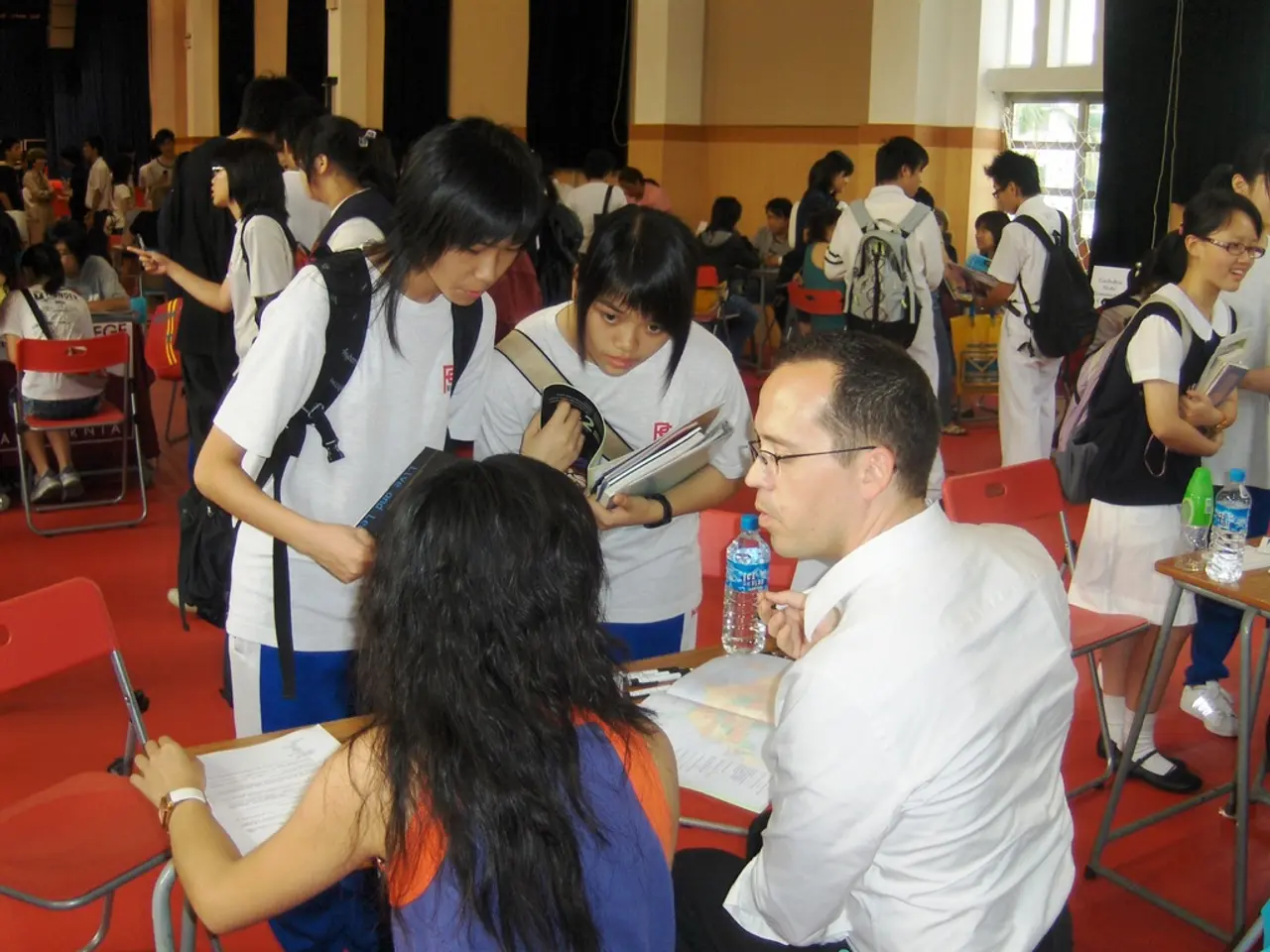Strengthening Educator-Pupil Bonds for Optimized Knowledge Transfer
Fostering Strong Teacher-Student Relationships in Primary Education
Effective teacher-student relationships in primary education play a pivotal role in enhancing both academic achievement and social-emotional development. According to recent studies, students who feel supported by their teachers tend to be more motivated, exhibit better academic performance, and develop higher self-esteem and active participation in class [1][2][3][5].
These relationships provide emotional support, foster personal growth including empathy and responsibility, and contribute to overall mental health and well-being. For teachers, strong relationships improve classroom management, job satisfaction, and understanding of students’ needs, leading to a more positive learning environment [1].
In both traditional and online learning environments, fostering these relationships requires deliberate strategies. Consistent, respectful communication that encourages students to share academic or personal struggles, building trust and emotional safety, is key [1]. Providing emotional, social, and intellectual support with enthusiasm and prompt responses, especially critical in online settings, also enhances student satisfaction and reduces burnout [4].
Promoting social-emotional learning (SEL) to develop students’ self-awareness, social skills, confidence, and resilience, which supports academic and social outcomes alike, is another essential strategy [5]. Adapting teaching attitudes toward learning modalities, positively embracing both face-to-face and blended or online learning, since teachers’ enthusiasm strongly influences students’ motivation and engagement, is also important [4].
Implementing cooperative learning and active classroom engagement to foster positive behaviors and peer relationships, benefiting both learning and classroom dynamics, is another beneficial approach [4][5]. Together, these strategies help create caring, supportive connections that improve academic perseverance, socio-emotional development, classroom climate, mental health, and lifelong learning capabilities for primary students across educational settings [3][5].
In online learning contexts, teachers must utilize various communication tools and create an inclusive digital environment to maintain connections. Building positive teacher-student relationships involves fostering an environment of trust, respect, and support through personalized approaches, active listening, setting clear expectations, and regular feedback [5].
Healthy teacher-student relationships are characterized by trust, mutual respect, open communication, encouragement, and support. Positive qualities in educators, such as empathy and adaptability, can enhance relationships. Strong teacher-student relationships in primary education enhance student engagement and encourage a love for learning [5].
By prioritizing trust, respect, and open communication, teachers can significantly impact their students' educational experiences. Supportive relationships contribute to social and emotional development, reducing behavioral issues and fostering resilience. Understanding the dynamics of teacher-student relationships is essential for educators aiming to cultivate a positive atmosphere in the classroom, and continually evaluating strategies and incorporating student feedback is crucial for enhancing teacher-student relationships for future generations.
References:
[1] Weissberg, R. P., Greenberg, M. T., & Link, B. G. (2015). Promoting positive youth development: Enhancing the lives of children, youth, and families. Guilford Press.
[2] Elias, M. J., & Zins, J. E. (2009). The power of positive relationships: Positive youth development for the 21st century. Guilford Press.
[3] Grolnick, W. S., & Slowiaczek, A. (2008). Self-determination theory in education: A practical guide. Routledge.
[4] Zimmerman, B. J., & Kitsantas, A. (2005). Academic motivation and achievement: Advances in self-determination research. Guilford Press.
[5] Marzano, R. J. (2003). Classroom instruction that works: Research-based strategies for increasing student achievement. ASCD.
In the realm of education-and-self-development, professional development for teachers incorporates strategies that strengthen teacher-student relationships, even in e-learning environments. These include empathetic communication, building trust, and providing emotional support to enhance learning and reduce burnout for primary students [5].
To foster effective learning and self-development in students, educators should embrace social-emotional learning as a key strategy, promoting positive relationships, self-awareness, and resilience, benefiting both academic and social outcomes [5].




